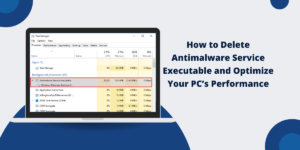Every digital interaction, from sending an email to visiting a secure website, depends on more than encryption software. It relies on the integrity of the physical network that connects users to the internet. While SSL certificates and encrypted protocols protect data in transit, those protections are only as strong as the network devices handling the connection. The modem and router together form the first line of defense between private data and external threats.
The Hidden Layer of Network Security
Most discussions of cybersecurity focus on software firewalls or endpoint protection. Yet a significant share of vulnerabilities originate in the network infrastructure itself. Unpatched routers, outdated firmware, and misconfigured modems are often exploited by attackers to intercept traffic or inject malicious code.
A secure network begins with strong authentication, encrypted communication, and properly segmented devices. When the gateway that manages all this communication is weak, even the best SSL encryption can be undermined. Attackers who gain access to a router can redirect encrypted traffic, alter DNS settings, or capture credentials before they are sent through a secure tunnel.
The Benefits of Unified Gateway Systems
As home and business networks grow more complex, integrated hardware solutions have emerged to simplify management and strengthen protection. Instead of operating separate devices for connectivity and distribution, users can combine both into one streamlined system.
Cybernews notes that adopting an efficient modem router combo can enhance not just convenience but also network integrity. With unified firmware and centralized updates, security patches are deployed more consistently across all components. The publication points out that this reduces configuration conflicts, improves stability, and ensures encryption standards such as WPA3 remain active across the entire connection path.
This single-device approach also limits potential access points for intrusion. Fewer network nodes mean fewer vulnerabilities to monitor, which helps both individual users and IT administrators maintain a tighter security perimeter.
Encryption Beyond the Browser
SSL certificates protect information as it moves across the web, but the encryption process starts earlier, within the local network. A compromised router can weaken the effectiveness of SSL protection by rerouting data through unsafe paths. By contrast, a secure gateway encrypts local traffic before it reaches the internet, creating an additional security layer that protects credentials, banking information, and transmitted files.
Some integrated systems even include built-in VPN functionality or hardware-based encryption modules. These add-ons ensure that even internal data, such as communication between smart devices, remains protected from interception.
Best Practices for a Secure Network Gateway
The security of a network depends on consistent maintenance and careful configuration. To maximize protection, users should:
- Regularly update firmware to ensure the latest encryption and SSL compatibility
- Disable remote management unless required for administration
- Change factory default passwords immediately after setup
- Enable WPA3 or equivalent wireless encryption
- Check DNS settings to prevent redirection attacks
- Use network segmentation to isolate IoT or guest devices
These measures strengthen both the hardware and software layers of security, creating an environment where SSL and encryption tools can function without interference.
Strengthening Trust at the Entry Point
The gateway is where digital trust begins. While SSL certificates authenticate websites and protect data in transit, the modem and router protect the environment where those interactions start. A secure connection is not only defined by encryption protocols but also by the hardware that delivers them.
A Unified Future for Network Security
As Cybernews highlights, reliable integrated devices like a modem router combo can enhance encryption consistency, reduce configuration risk, and help maintain network trust at every level. In the broader view of cybersecurity, this integration marks a step toward a more unified and transparent protection model.
Securing the gateway ensures that SSL encryption and data protection work as intended. When the hardware and software layers align, users benefit from a faster, safer, and more reliable connection that upholds the core principle of the internet: secure communication built on trust.

Priya Mervana
 Verified Web Security Experts
Verified Web Security Experts
Priya Mervana is working at SSLInsights.com as a web security expert with over 10 years of experience writing about encryption, SSL certificates, and online privacy. She aims to make complex security topics easily understandable for everyday internet users.



